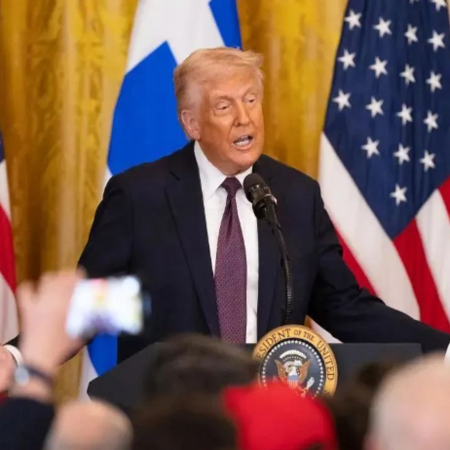call us
+86-189 57873009mail us
[email protected]call us
+86-189 57873009mail us
[email protected]On the 24th local time, US President Trump announced a series of tariff measures. The White House said that US President Trump signed an executive order to impose "tariff sanctions" on countries that import Venezuelan oil.
The statement said that starting from 2nd April, the United States may impose a 25% tariff on all goods imported from any country that directly or indirectly imports Venezuelan oil.
In addition, Trump also said that he would announce additional tariffs on cars, timber, and chips in the coming days. This indicates that he plans to impose more comprehensive tariffs on top of the upcoming "reciprocal tariffs." However, some analysts believe that there are still uncertainties about whether these tariffs will be implemented and how they will be implemented.
The order authorizes the US Secretary of State to decide whether to impose a 25% tariff on the goods of any country that directly or indirectly imports Venezuelan oil on or after 2nd April. Once the Secretary of State decides to impose a 25% tariff on a country, the tariff will expire one year after the country's last import of Venezuelan oil, or at an earlier date determined after consultation between the Secretary of Commerce and the Secretary of State, the Secretary of the Treasury, the Secretary of Homeland Security, and the United States Trade Representative.
On the 24th, US President Trump announced on social media that he would impose a 25% tariff on countries that purchase Venezuelan oil and gas, alleging that this Latin American country is full of "hostility" towards the United States.
Trump said that the relevant tariffs would come into effect on 2nd April. Venezuelan Foreign Minister Hill said on the 24th that the US measure to impose a 25% tariff on countries that purchase oil and gas from Venezuela is "illegal" and "arbitrary."
Trump's latest punitive measure may hit countries such as China and India and trigger new uncertainties in global trade.
Trump posted on social media (Truth Social) that the latest comprehensive 25% tariff on countries that purchase Venezuelan oil or gas would come into effect on 2nd April. He posted: "Any country that purchases oil or gas from Venezuela will be forced to pay a 25% tariff to the United States when conducting any trade with our country."
Regarding the reasons for this sudden tariff sanction on Venezuela, Trump pointed out in his post that there are many reasons for implementing this tariff measure, including that Venezuela "intentionally and dishonestly" sent a large number of criminals to the United States.
Trump frequently uses tariffs as a means of pressure to deal with trade disputes or tense international relations. This tariff measure on Venezuelan oil and gas will deal a major blow to the Venezuelan economy, as oil exports account for more than 80% of its total exports. The United States is also one of the destinations for Venezuelan energy. According to data from market research institutions, in 2024, Venezuela's crude oil exports to the United States were approximately 233,000 barrels per day.
Trump's tariff measures have attracted widespread attention and concern from the international community. These measures may have a profound impact on the global economy and exacerbate tensions in international trade.
